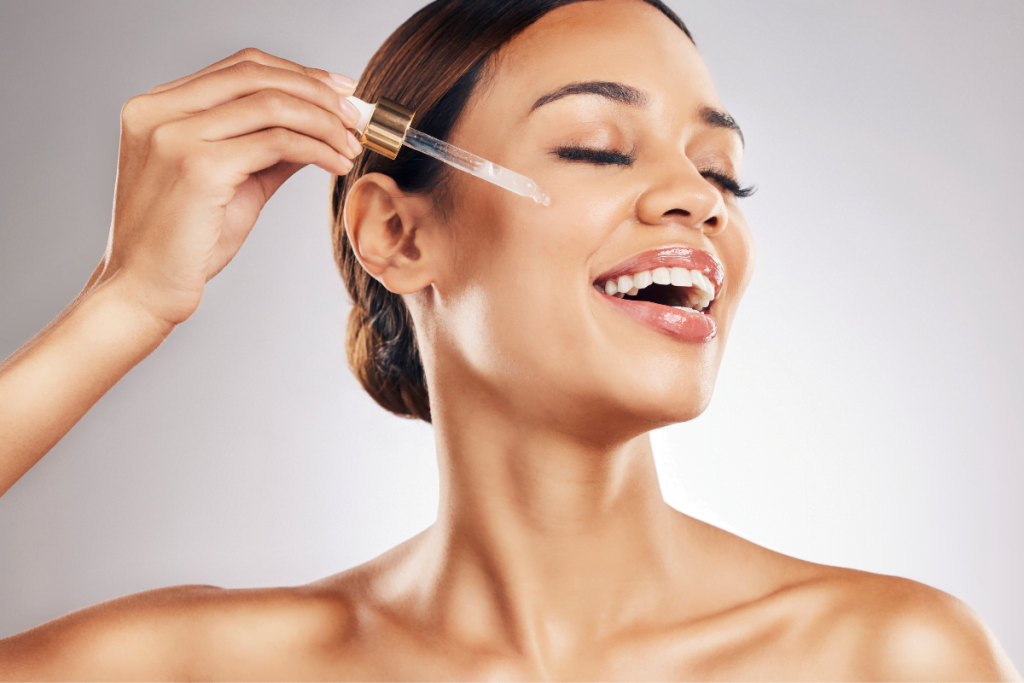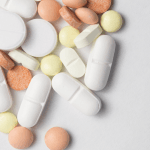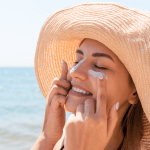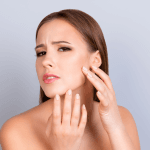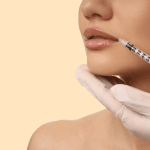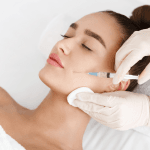Retinol remains a core topical option for photoaging and texture concerns. For many practices, the real work is not choosing a brand. It is setting expectations, minimizing irritation, and standardizing follow-up. This guide focuses on the benefits of retinol in a clinic setting, using practical language you can share across teams. It also addresses common misconceptions seen in “before and after” searches.
Retinol is a vitamin A derivative within the broader retinoid class. Patients often use “retinol” as a catch-all term. Clinicians and staff benefit from a shared vocabulary that separates over-the-counter retinol from prescription retinoids, including tretinoin. That distinction shapes tolerability, counseling, and documentation.
Key Takeaways
- Align goals with diagnosis and baseline skin condition
- Set realistic “before and after” expectations
- Anticipate irritation and plan escalation strategies
- Document product type, patient education, and follow-up triggers
- Source through verified clinical supply channels
benefits of retinol: Practical Clinical Overview
Retinol is widely used for visible signs of aging, uneven tone, and acne-prone skin. In practice, it is valued because it can support smoother texture and a more even-appearing complexion over time. It may also reduce the appearance of fine lines by influencing dermal remodeling pathways and epidermal turnover.
Operationally, retinol is often introduced as a “long game” topical. The upside is broad applicability across cosmetic dermatology and general skin health programs. The trade-off is that early irritation can derail adherence. Your protocols should emphasize tolerability, barrier support, and consistent re-evaluation rather than aggressive escalation.
How Retinol Works and Why Results Look Gradual
From a mechanistic standpoint, retinoids bind nuclear receptors after conversion to retinoic acid in the skin. That downstream signaling can influence keratinocyte differentiation and collagen-related pathways. For staff education, it helps to translate this into plain terms: retinol can encourage more orderly skin cell turnover and support firmer-looking skin.
Patients often conflate “peeling” with effectiveness. Mild flaking can occur, but it is not a required marker of response. A better clinical message is that visible changes usually accumulate. Improvements may be subtle early on, then become clearer with sustained use and good sun protection habits.
Collagen Signaling and Epidermal Turnover
Retinol’s best-known use is for photodamage (sun-related skin aging). At a high level, retinoids can support dermal matrix maintenance and normalize epidermal turnover. That combination is why clinics use retinoids for fine texture changes and dyschromia (uneven pigmentation) patterns, alongside other modalities. In acne-prone patients, retinoid activity can be comedolytic (helps prevent clogged pores), which may reduce new comedone formation. Individual response varies by baseline irritation risk, concurrent actives, and the vehicle used.
Why it matters: Better mechanistic framing improves adherence and reduces “quick-fix” expectations.
MedWholesaleSupplies limits access to verified clinical and professional accounts.
Interpreting “Before and After” Requests in Clinic Conversations
Search-driven expectations are a consistent friction point. People looking for “before and after” images may assume fast, dramatic change. In reality, topical retinoids tend to deliver incremental improvements. Lighting, photography, filters, and concurrent procedures can all distort comparisons. When teams discuss benefits of retinol, consider anchoring the conversation to measurable clinic-friendly endpoints. Examples include reduced roughness, fewer clogged pores, and a more even tone. When appropriate, standardize baseline photos and follow-up intervals so your documentation is internally consistent.
Choosing a Vehicle: Serum, Cream, and Prescription Options
Vehicle selection often drives tolerability more than the headline active. A “serum” may feel lighter and layer easily. A “cream” may feel more occlusive and supportive for dryness. These are functional descriptions rather than guarantees of performance. Your team can use this framing to match patient preferences and reduce early discontinuation.
When patients ask whether a stronger retinoid is “better,” it helps to explain the spectrum. Over-the-counter retinol products require skin conversion steps. Prescription retinoids are active forms with clearer regulatory labeling. For a deeper clinical comparison, see Tretinoin Vs Retinol Comparison.
| Option | Common clinic use | Practical considerations |
|---|---|---|
| Retinol serum | Texture, tone, layering with other actives | Often easier layering; irritation still possible |
| Retinol cream | Dryness-prone patients needing barrier support | Heavier feel; may reduce perceived tightness |
| Prescription retinoid | Acne and photoaging under prescriber oversight | Label-guided counseling; higher irritation potential |
For teams browsing formulations across vendors, a category hub can reduce time spent comparing textures and formats. You can also standardize which formats you stock or recommend by browsing Creams And Serums and Creams And Serums Hub.
When products are used as examples in staff training, keep the focus on vehicle, concentration labeling, and tolerability language rather than brand claims. Example pages like ZO Retinol and ZO Wrinkle Texture Repair can help teams practice reading ingredient positioning and use instructions.
Managing Irritation and “Retinol Ruined My Skin” Complaints
Irritation is the most common reason patients stop retinoids. The symptom cluster is familiar: dryness, erythema, stinging, and visible peeling. Patients may describe this as “retinol burn” or say retinol ruined my skin. In many cases, the issue is an impaired barrier plus too many concurrent actives, not permanent damage. Still, you should treat discomfort reports seriously and document the course.
When discussing benefits of retinol, pair the upside with a plain-language plan for side effects. Staff should be prepared to review cleansers, exfoliants, benzoyl peroxide, acids, and post-procedure timing. Also consider environmental triggers like cold weather or frequent mask use. The goal is fewer stop-start cycles and fewer emergency messages.
Common Tolerability Pressure Points
Several patterns drive retinol side effects on face in real-world use. First is applying to damp skin, which can increase penetration and stinging. Second is combining multiple exfoliating steps on the same nights. Third is skipping moisturizer because patients fear “diluting” results. Many clinics teach buffered application approaches, such as applying moisturizer before or after the retinoid, depending on patient sensitivity and product instructions. If a patient asks about retinol before and after moisturizer, staff can explain that sequencing is often chosen to balance efficacy and tolerability, while still following the product label.
Quick tip: Standardize a one-page “irritation plan” for staff to follow consistently.
MedWholesaleSupplies focuses on authentic, brand-name medical inventory rather than grey-market sourcing.
Long-Term Use, Safety Signals, and Cancer Misconceptions
Patients increasingly ask about long-term risks, including retinol side effects long-term and whether retinol side effects cancer is a concern. They may also ask directly: does retinol cause breast cancer. Your team should respond with careful, evidence-based language and avoid overconfident absolutes. In general, topical retinoids have a long history of dermatologic use, but individual risk assessment depends on the specific molecule, product labeling, patient factors, and pregnancy status.
It also helps to separate topical use from systemic retinoids, which have different risk profiles and monitoring requirements. In pregnancy and lactation contexts, many clinicians avoid topical retinoids out of caution and because guidance varies by product. For clinic operations, the key is consistency: follow the official labeling, document counseling, and escalate clinical questions to the prescriber.
When patients bring cancer concerns, acknowledge uncertainty and the limits of online anecdotes. Then reference credible sources. Avoid debating social media threads in the exam room. Instead, confirm what product is being used, how it is applied, and whether there are signs of irritant dermatitis (skin inflammation from irritation) that warrant evaluation.
Clinic Workflow and Procurement Considerations
Retinoids are common enough that clinics benefit from a repeatable workflow. This reduces variation across providers and helps new staff handle calls about dryness, redness, or peeling. It also keeps your inventory aligned with typical use cases (starter options versus higher-strength or procedure-adjunct products). If you support multiple locations, a single spec sheet for each retinoid product can prevent inconsistent counseling.
From a sourcing perspective, build in basic verification steps. This matters because packaging and labeling differences can confuse patients and staff. Maintain lot-level documentation when available, and align storage with the manufacturer’s instructions. If you rely on US distribution for routine replenishment, ensure your par levels reflect seasonal spikes in demand and post-holiday consult volume.
Procurement Checklist (Clinic-Facing)
- Account verification on file
- Product label and IFU archived
- Lot and expiry recorded
- Storage conditions confirmed
- Staff counseling script updated
- Adverse event escalation path defined
- Verify: confirm supplier credentials and documentation expectations.
- Document: store labeling, lot, and expiry in your inventory system.
- Receive: inspect packaging integrity and match to purchase records.
- Store: follow manufacturer conditions; limit heat and light exposure.
- Dispense: record product identity in the patient chart when applicable.
- Review: track common complaints and refine your education materials.
MedWholesaleSupplies sources products through vetted distributor channels.
Putting Retinol Into a Consistent Clinical Protocol
A protocol does not need to be complex. It needs to be consistent. Start with a shared intake language for “retinol” requests. Confirm whether the patient means over-the-counter retinol, retinaldehyde, prescription tretinoin, or a retinoid-like product. Then connect the request to a clinical goal: acne control, fine texture, mottled pigmentation, or overall maintenance.
Within that structure, you can explain benefits of retinol in terms patients understand. Use outcome categories rather than timelines. Emphasize that comfort and consistency matter, especially during the first phase. If a patient expects dramatic change in retinol before and after 1 month photos, reframe the first month as an adjustment period. If they ask about retinol before and after 3 months or 1 year comparisons, explain that longer windows better reflect gradual remodeling and improved routine adherence, while results still vary widely.
Also plan for subgroup questions. Some men ask whether retinoids “work differently” on thicker skin. Others ask if retinol is bad for young skin. In both cases, your staff can center the discussion on indication, tolerability, and alternatives, rather than age or gender assumptions. Finally, encourage standardized adjunct guidance on gentle cleansing, moisturizer selection, and daytime photoprotection habits as part of routine skin health counseling. If you maintain centralized fulfillment, reliable US logistics can help keep patient-facing regimens consistent across sites.
For broader context on multimodal care plans, see Anti-Aging Treatments Overview and Antioxidants And Skincare. If your clinic offers adjunct procedures, you may also reference PRX-T33 Treatment or Mesotherapy Injections when building a layered plan. For teams updating their product education library, Best Skincare Products 2025 can support internal discussion about regimen structure.
Authoritative Sources
For neutral, patient-friendly background, refer to American Academy of Dermatology guidance on retinoids.
For clinical terminology and common adverse effects, see DermNet NZ overview of topical retinoids.
This content is for informational purposes only and is not a substitute for professional medical advice.

